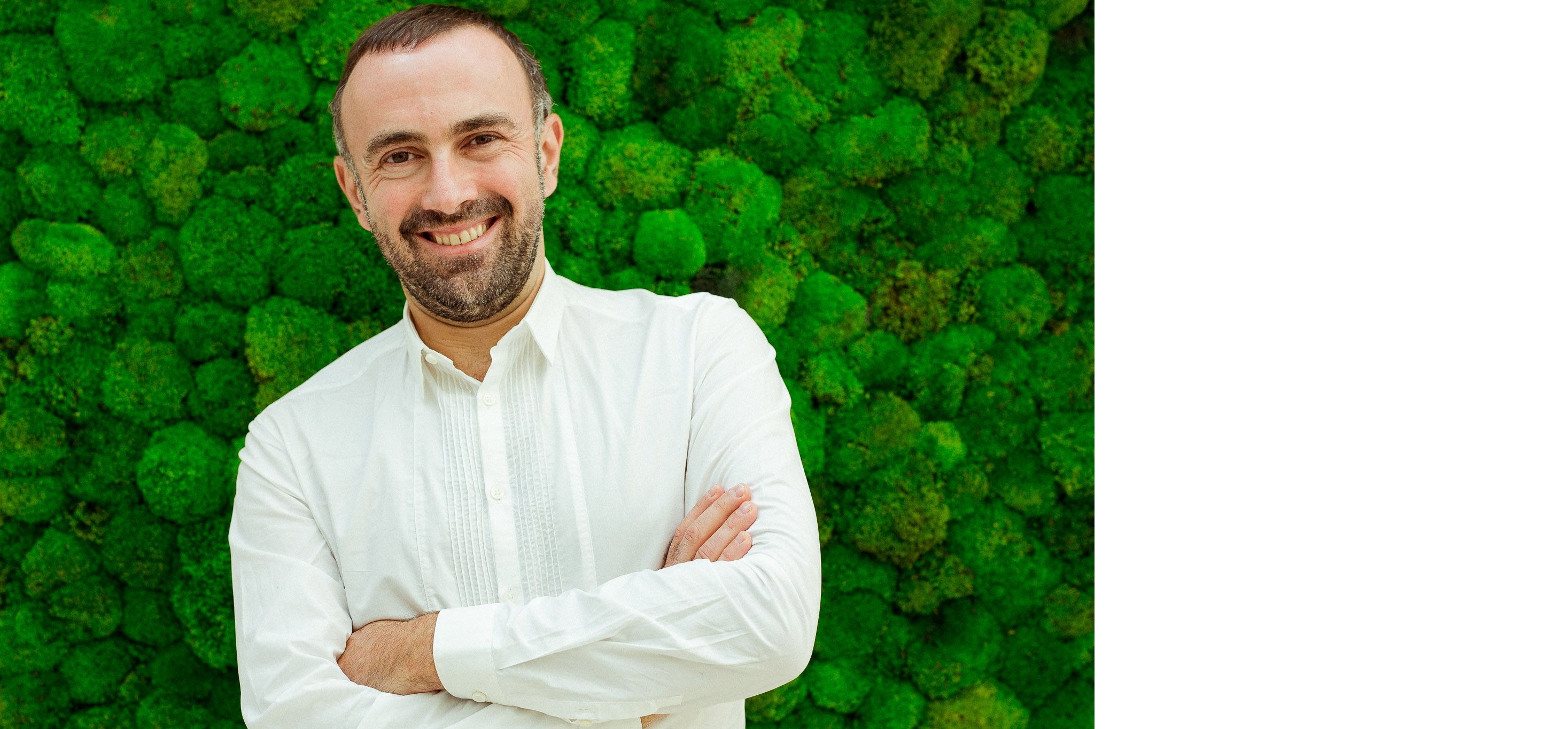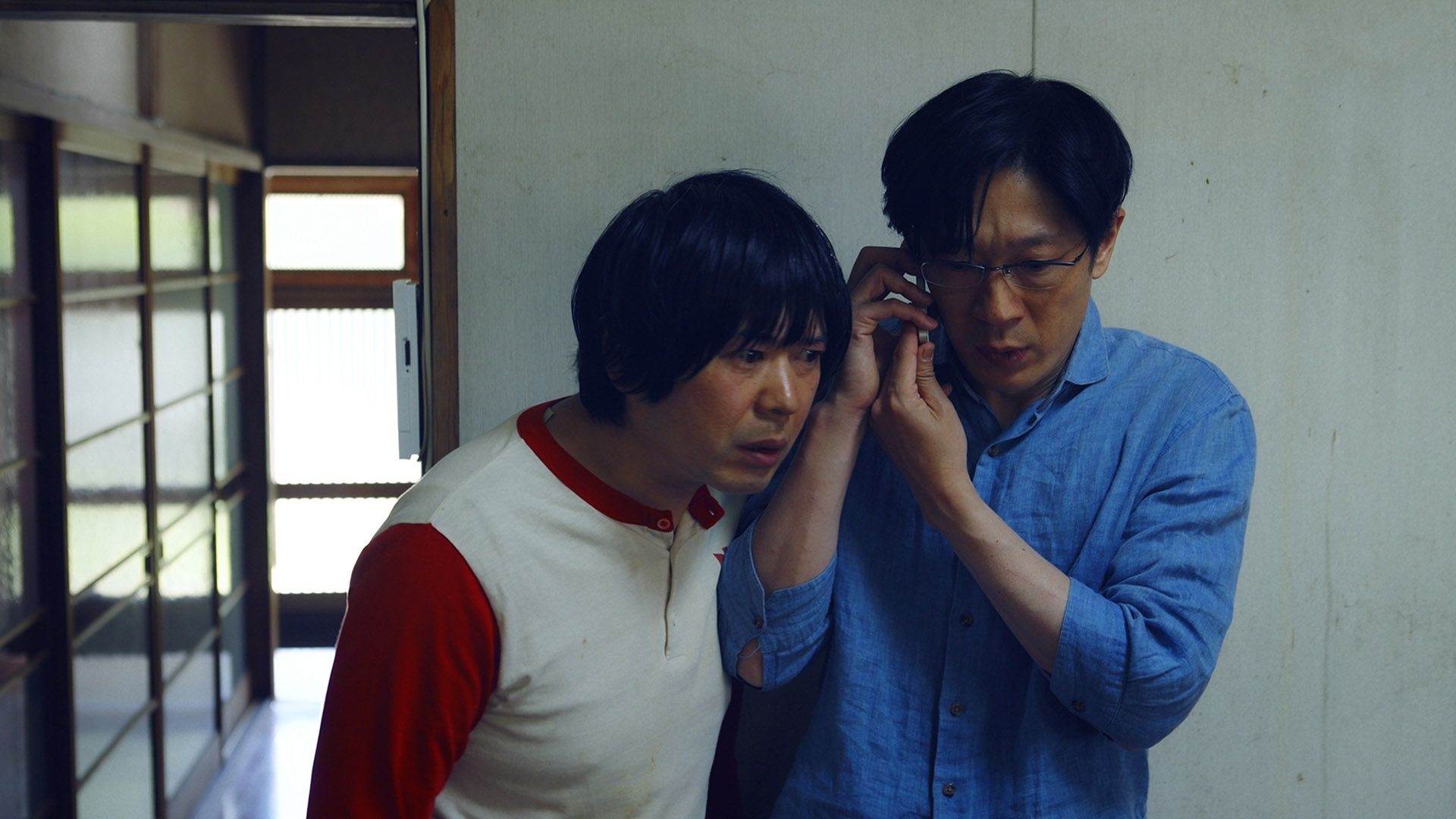
On what principle do you select films for the PÖFF Critics' Picks competition program, and how does this selection differ from similar programs at other film festivals?
Quality and artistic vision in all departments – this is the highest criteria for me. As we talk about cinema, we talk about art form of course. It´s very subjective, I don´t believe if there is any objectivity in art like this like in sports. Because in sports we can know if somebody runs 100 meters in 10 seconds or 12 seconds and this is supposed to be objective but then of course we know people take drugs so it´s again very subjective. But in art it´s I think in the end all about taste but also about knowledge, reflection what has especially been there in the cinema world and what new movements, what are really artistic quality, breaking borders and presenting us something new at the same time knowing that something new in the art can´t be done. Because in terms of stories all about Romeo and Juliet on one way or the other but it´s still very interesting to see what variations there are and how nowadays directors and the artistic teams are playing with the classical plots that were there and for example how it´s done visually of course. We talk about visual media that´s why I always want to stress it, it´s not only the work of the director and actors whom we see on the screen but also of the director of photography, of the production design, how all the sets are built. Editing is also very important because it´s keeps the pace.
My background is being a film critic myself more than 20 years. I´ve been appreciating cinema and knowing what works and what doesn´t work there. I am very grateful to our great festival director Tiina Lokk that she gave me the chance to start this section for already three years ago to reflect especially on this cinema which has very clear focus and style. This year we have so called top ten, so there´s really only ten films in our competition, which are all world premiers, which is very important to stress, because we have some 40 000 film festivals around the world, PÖFF is one of the 14 A-class festivals. But it´s still a big achievement have only world premiers there and we have one out of competition screening “Quiet Life” which is a co-production with Estonia which is also very important for me (as I´m non-Estonian) to support the local cinema as much as possible: I am also very glad that we have in a main competition Estonian content and Estonian co-productions. The film “Quiet life” premiered in Venice and just recently. Venice´s been the oldest film festival and has one of the best curators in my eyes, and that closes the circle. The producer of this film Riina Sildos, who is very active producer, was actually in the first year´s Critics´ Picks jury.
We started our Critics´ Picks section three years ago it was inspired by the different festivals´ Critics´ weeks which are also curated by film critics. The first critics´ week was established in 1962 at Cannes Film festival. Venice critics´ week was established in 1984, Berlin and Locarno followed afterwards. Now we have this side of the festival program covered. In Cannes they focus on debut films and second time films, discovering young voices. Very many worldwide famous film directors were started there also at other festivals´ critics´ weeks. As we have our wonderful section of first films in PÖFF led by Triin Tramberg we don´t need to focus on first and second films in Critics´ Picks. We have some debuts and second films in our program but basically it´s not our focus. This is the difference between our Critics´ Picks selection and the ones at other festivals. The other big difference is that the other festivals critics´ sections last a week showing seven feature films (sometimes short films also) during this time. I wanted to have the opportunity to present more films to cover the world (which as we know as almost 200 countries) so we have 10/11 this year. But maybe the main difference is that I don’t only want to present difficult and demanding arthouse films, but so called cross-over films, that can reach a wide audience. To explain it simple, well realized author’s genre film, just like my inspiration by the French directors of the Nouvelle Vague, who used to be Critics and rediscovered the oeuvre of mainstream director Alfred Hitchcock as an author. We have in our selection also entertaining films, genre films, have comedy and action – these are films which we can also present as author cinema.

What characterizes this year's film selection? Which themes, genres, and perspectives stand out?
Our mission is to present a curatorial thin red line to the audience trying to find films that in a way talk to each other correspond to each other. I think this year´s curatorial line is very much focused on different genre films. And what I see in a world of cinema in our awful times that directors are basically with humor to it. It´s interesting because we know the same thing happened after the First World War, after the Second World War that artists react with humor just to be able to overcome somehow what´s been happening. This goes back to Voltaire and his “Candide” which shows how comedy can express artistic ideas in cruel times. So I am very happy that we have black comedies about the only topic you should not to make fun of: it´s death. The opening film “Dreaming of Lions” from Portugal is set about euthanasia and closing film “The Brothers Kitaura” from Japan is about killing the own father (according to Freud killing the father is beginning o f the culture). These films are actually very funny. Watching them you may really distract from reality. These films are bigger than life even though they have small budget. These films put your mind on a travel and this is so great with the genre. Comedy is the most difficult genre to be successful. The whole Hollywood is built by giants of the comedy genre like Billy Wilder and Ernst Lubitsch. Next to the comedy is action. We have wonderful action movie like a “Rambo” version from Kazakhstan – “Moor” by Adilkhan Yerzhanov. And we have psychological thriller “The Body” from Italy. And you can see there´s a big diversity in countries. We take the audience to a travel across the world. But in these genre films which have again very strong artistic position and they are all surprising. It´s not what you see on Netflix where you can presage after two minutes watching how the film will end, our films are very unpredictable and very smartly done and wonderful and full of fun!
Is there anything surprising in this year's selection for an experienced curator?
Let´s see what I live for? To have surprises. I watch over 1000 films in a year and many of them are unfortunately not surprising. I was very surprised by a new real discovery and I want to share it with Tallinn audience but also with professional press and colleagues who will come to Industry@Tallinn & Baltic Event. It´s called “I, the Song” and it´s a film from Bhutan by the female director Dechen Roder. For many years we didn´t know anything about cinema in Bhutan, we know Bhutan by other reasons, it was always very dominated by its big neighbor India. But only since couple of years thanks to director who was once Oscar nominated and once Oscar shortlisted Pawo Choyning Dorji Bhutan exists as a cinema country. So I am very happy that now we can present female director from Bhutan who has very strong story. The classical motif of doppelganger she uses in her film goes back to German expressionism and also to “The Double Life of Veronique” by Kieślowski. Besides this, there is “Fishgirl”, a debut feature from Ecuador which is surrealistic and mind blowing film. And let me mention two other films I didn´t expected like this. One of them is “Hani”, a Canadian film about child marriages in China. It´s very tough topic but it is done in a very profound and honest way using non-professional actors, very close to the cinéma vérité. The other film is very passionate entry from Brazil “Streets of Glória”. Those two films are very different from Bhutanese film and Ecuadorian film but they are also very special in themselves. And last but not least I am very happily surprised by the big wave of Lithuanian cinema. Our dear neighbors had made two successful screenings in Locarno Film Festival. One of these is “Jōhatsu” made by Lina Lužytė and Nerijus Milerius performing in our selection. It´s always very surprising for me how two artists can share their artistic vision, how two people can direct film together. We have also another film with creative duo it´s “Nobody Likes Me” from Czech Republic. This is always special for me because audience can get two visions for the price of one.

Do the arthouse films offered in the Critics' Picks selection also serve to cultivate taste among a broader audience?
Critics´ Picks aims to achieve to take away separation between demanding arthouse films and audience-friendly cinema. My mission in life is to change perspectives and reception of arthouse cinema which is often seen as boring, black and white, depressive, especially when we talk about Eastern-European films. They are all very difficult to consume, they are not fun. Our selection in this year is completely different. It´s totally colorful, diverse and surreal, it´s funny, joyful and full of action. Of course all of these ten films are from American Perspective still arthouse because they are not English speaking. Just effect that they are not from USA / UK / Australia, they don´t have big stars, makes them arthouse but it doesn´t mean that they are boring. It´s better to use term independent cinema. And if we go back to the 80s and 90s when I grew up we have great American independent filmmakers who made very funny comedies, wonderful action movies – genre films which we all enjoyed. Those directors who worked outside the studio system but afterwards, when independent productions became big, they were in a way discovered by film festivals. Very often film festivals have specially the role discovering new voices in cinema and I am sure all the directors we presenting this year will be discovered by the audience and also by the professional cinema world. We are very proud that the Hungarian animated documentary "Pelikan Blue," which had its world premiere at last year's Critics' Picks, has successfully participated in important international film festivals and is now nominated for the European Film Academy Award.
As a curator I take my job very seriously. The word curare comes from Latin and it means ´to heal´. But I don´t want heal the audience from the bad taste, I´d rather like to make this comparison to a chef of a good restaurant who prepares very special meals. For the audience it might take a bit more effort to get into this restaurant. It might to be a bit more expensive, but surely the culinary and sensational experience is gonna be much more than just burger around the corner. So let´s say watching films in the whole PÖFF´s program and especially the Critics´ Picks is like visiting a wonderful restaurant like you have in Tallinn, whereas watching films on VOD channels at home is like having a burger at fast food chain next door.
Who are the members of this year's critics' jury?
We have Miroslav Mogorovic, a film producer from Serbia – who is one of the most active European producers responsible for many festival winners of the young and established generation or former Yugoslavia directors and is also active as a festival organizer.
Gust Van Den Berghe is an outstanding director from Belgium, his “The Magnet Man”, very innovating and entertaining film was at last year in PÖFF main competition and got Best Original Score.
Elisa Fernanda Pirir is a Guatemalan film producer who moved to Northern Norway in 2007. Elisa has been working with several acclaimed international directors such as Thomas Arslan, Ciro Guerra, Cristina Gallego, Nabil Ayouch, César Díaz, Jonas Poher Rasmussen, Laura Mora, in addition to some of Norway’s most acclaimed directors. In 2023, she founded her own company STÆR in Northern Norway. In early 2023, her first feature documentary “Calls from Moscow” premiered in the Berlinale International Film Festival Forum, Hotdocs and MoMA, co-production “The Hypnosis” by Ernst De Geer won three prizes at Karlovy Vary and her first short film “Almost Invisible” was nominated for the Best Norwegian Short at Kortfilmfestivalen, the Bergen International Film Festival, the Tirana International Film Festival, the Tromsø International Film Festival and the Morelia International Film Festival 2023.